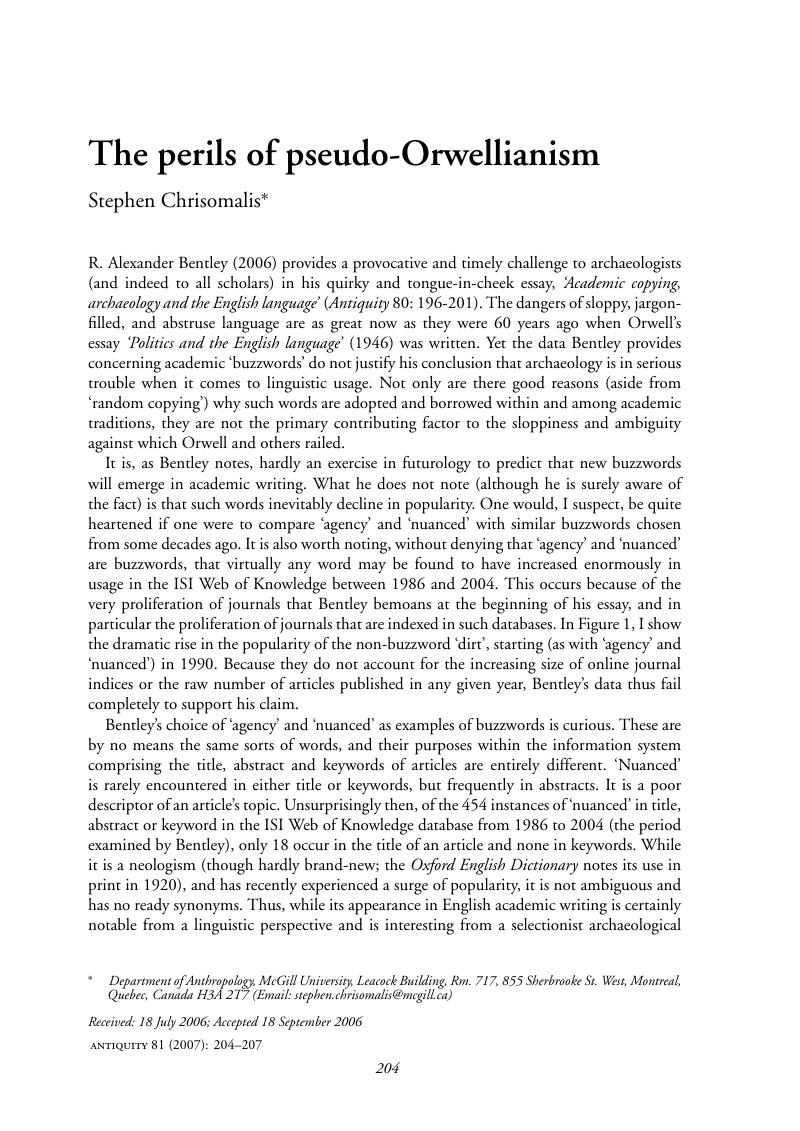Crossref Citations
This article has been cited by the following publications. This list is generated based on data provided by Crossref.
Bentley, R. Alexander
2007.
Fashion versus reason – then and now.
Antiquity,
Vol. 81,
Issue. 314,
p.
1071.



